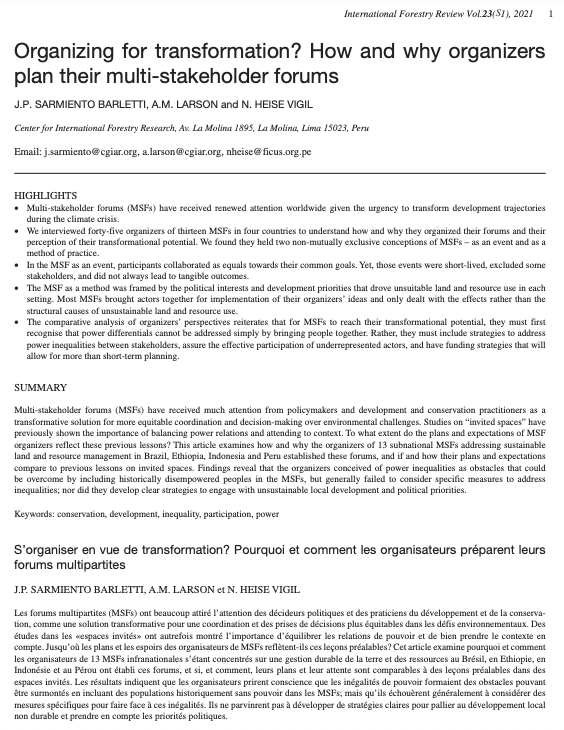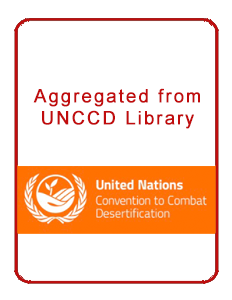Focal point
Location
The Center for International Forestry Research (CIFOR) is a non-profit, scientific facility that conducts research on the most pressing challenges of forest and landscapes management around the world. With our global, multidisciplinary approach, we aim to improve human well-being, protect the environment, and increase equity. To do so, we help policymakers, practitioners and communities make decisions based on solid science about how they use and manage their forests and landscapes.
Capacity building, collaboration and partnerships are essential to finding and implementing innovative solutions to the challenges that the globe faces. We are proud to work with local and international partners. We are a member of the CGIAR Consortium and lead the CGIAR Research Program on Forests, Trees and Agroforestry.
Our headquarters are in Bogor, Indonesia. We have offices in 8 countries across Asia, Latin America and Africa, and we work in more than 30 countries. Contact us for more information.
Resources
Displaying 21 - 25 of 808Can multi-stakeholder forums influence good governance in communal forest management? Lessons from two case studies in Ethiopia
HIGHLIGHTS
Organizing for transformation? How and why organizers plan their multi-stakeholder forums
HIGHLIGHTS
Forest tenure pathways to gender equality: A practitioner’s guide.
This practitioner’s guide explains how to promote gender-responsive forest tenure reform in community-based forest regimes. It is aimed at those taking up this challenge in developing countries. There is no one single approach to reforming forest tenure practices for achieving gender equality and women’s empowerment. Rather, it involves taking advantage of opportunities that emerge in various institutional arenas such as policy and law-making and implementation, government administration, customary or community-based tenure governance, or forest restoration at the landscape scale.
Forest tenure pathways to gender equality: A practitioner’s guide
This practitioner’s guide explains how to promote gender-responsive forest tenure reform in community-based forest regimes. It is aimed at those taking up this challenge in developing countries. There is no one single approach to reforming forest tenure practices for achieving gender equality and women’s empowerment. Rather, it involves taking advantage of opportunities that emerge in various institutional arenas such as policy and law-making and implementation, government administration, customary or community-based tenure governance, or forest restoration at the landscape scale.
Are forest tenure rights secure for local communities and indigenous peoples in Kenya? Assessment of land tenure rights under Kenya’s new legal framework
International standards can help businesses fill gaps in national law but addressing issues at scale requires systematic governance reform. Law is part of the problem as often are governments. In many countries features of the law facilitate dispossession. It is often not technical capacity that is missing but the political power to confront vested interests. The challenges are steep but need to be confronted.







